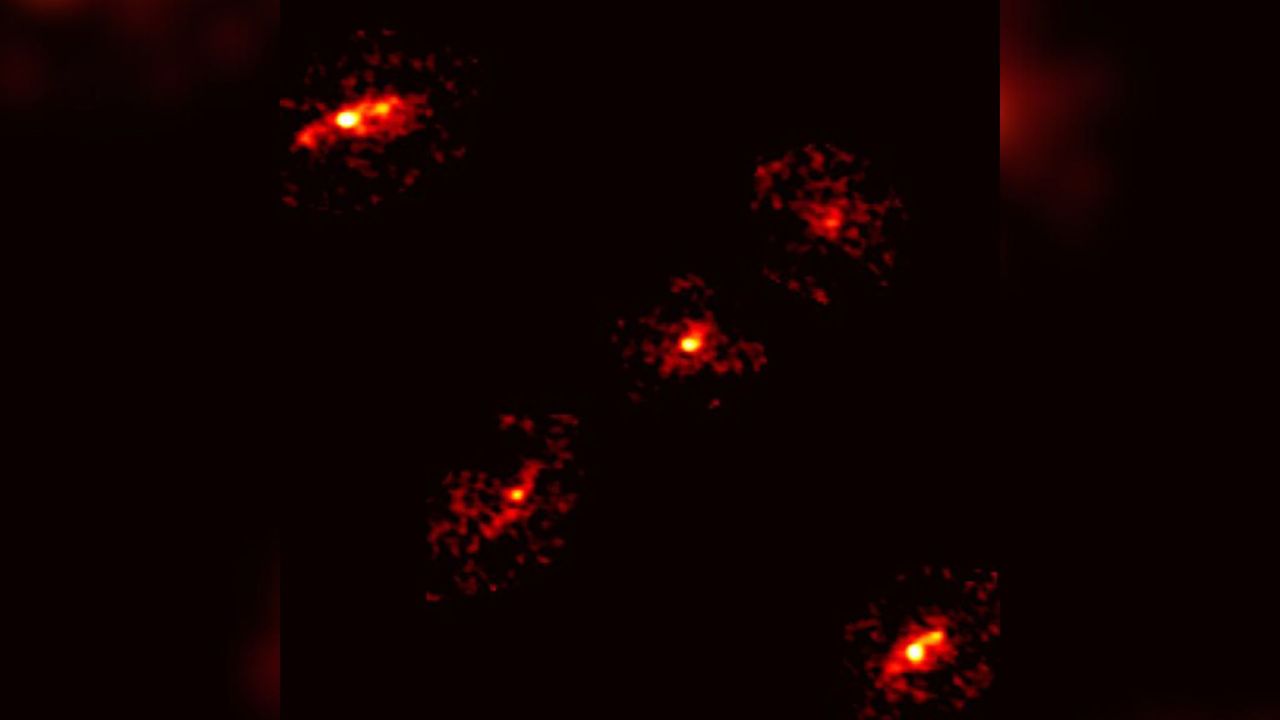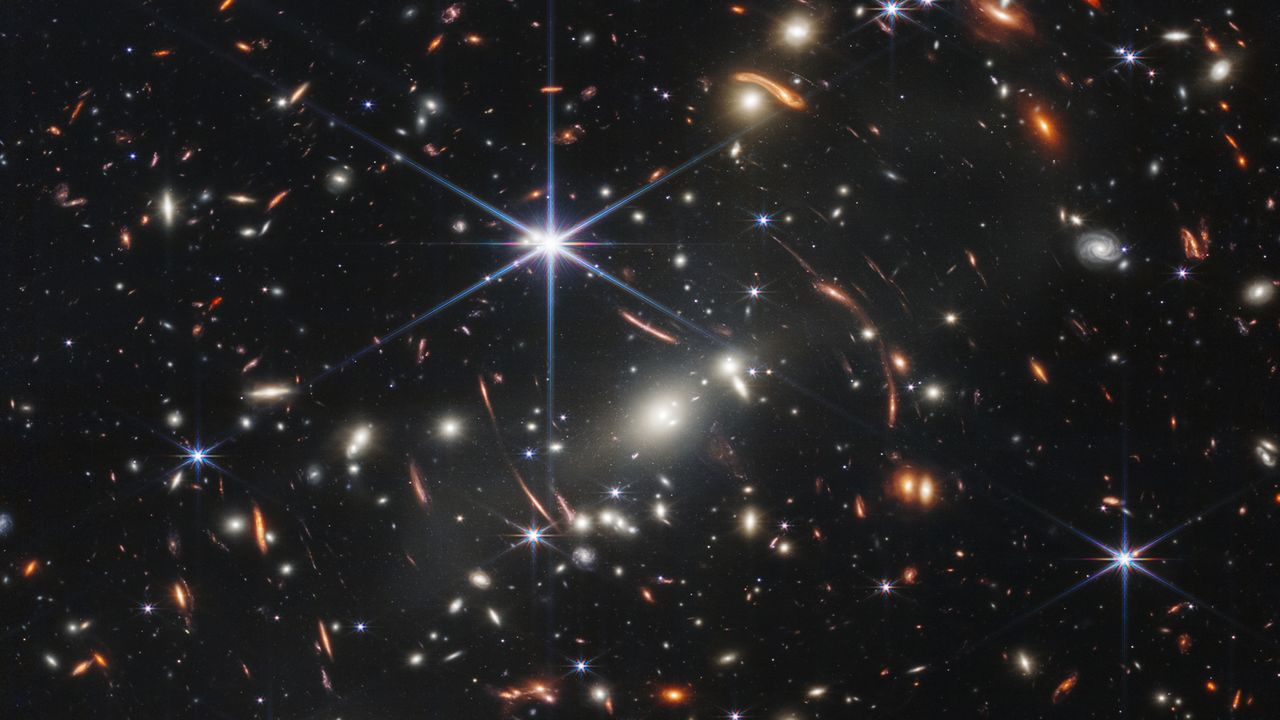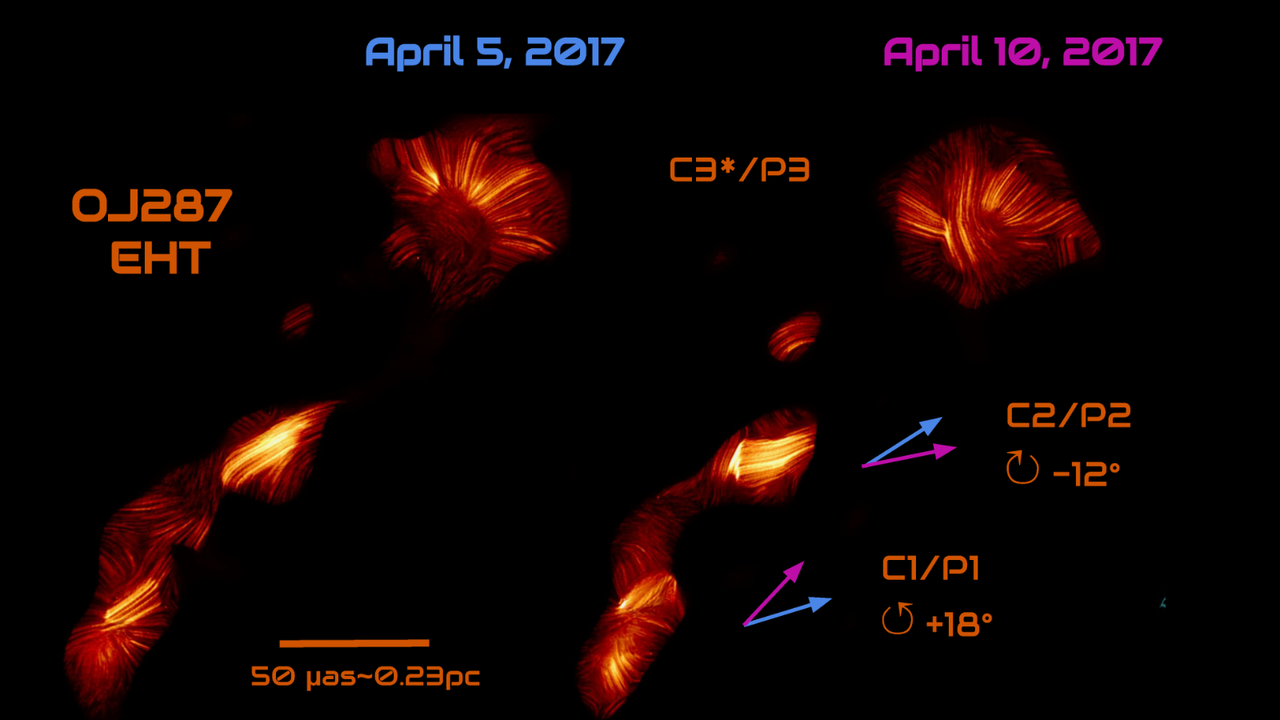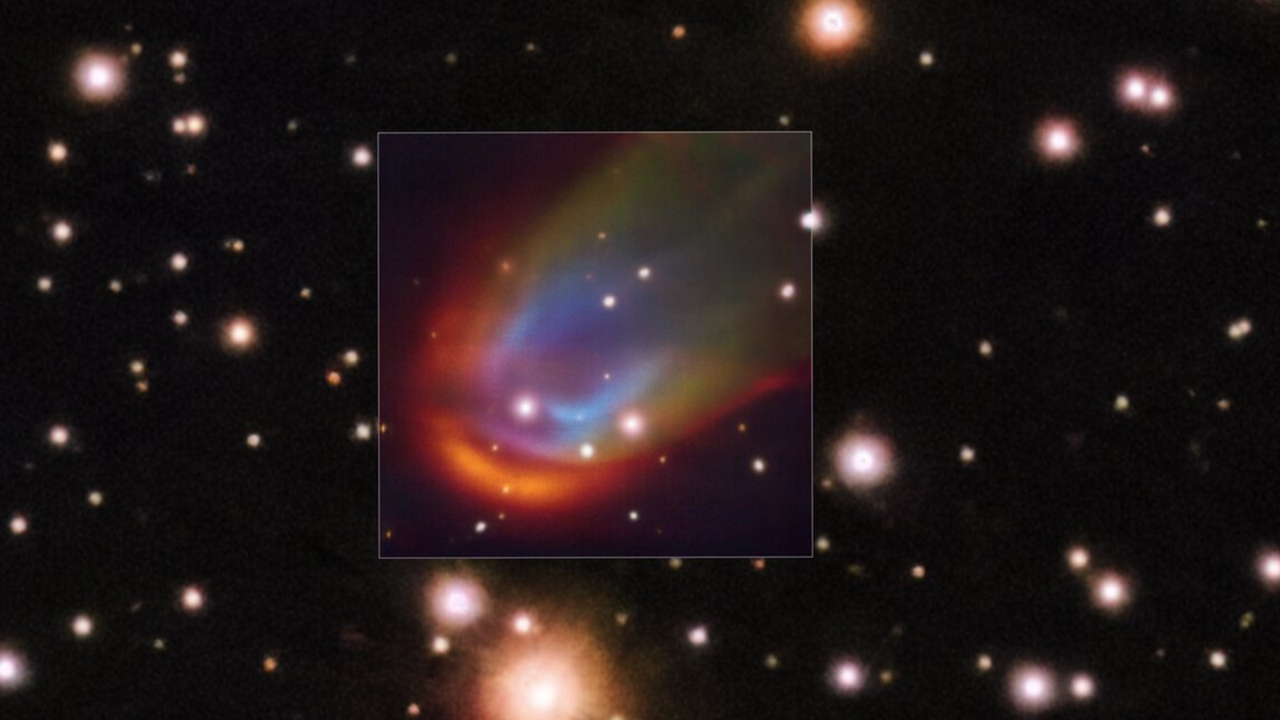A massive dark matter halo may explain the strange 5th point of this 'Einstein Cross'
PositiveScience

Astronomers have made an exciting discovery of a rare cosmic alignment that could unveil hidden dark matter, a mysterious substance that constitutes a significant portion of the universe. This finding not only enhances our understanding of dark matter but also opens new avenues for studying its properties, which have long puzzled scientists. The implications of this research could reshape our knowledge of the cosmos and how we perceive the universe's structure.
— via World Pulse Now AI Editorial System


